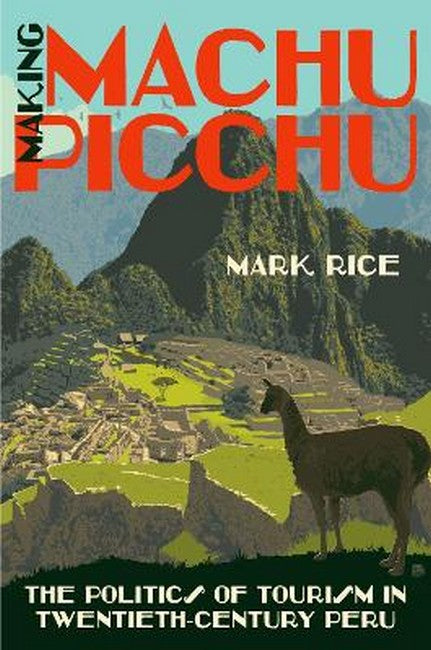Mark Rice is assistant professor of history at Baruch College, City University of New York.
Request Academic Copy
Please copy the ISBN for submitting review copy form
Description
Making Machu Picchu is a most welcome contribution to historical approaches to tourism development in Latin America. With its lively prose and marvelous detail, this book should be enjoyed by students, researchers, and a wider public, perhaps including many who have themselves undertaken journeys to the famed site that was newly 'discovered' over a century ago."--Estudios Interdisciplinarios de America Latina y el Caribe Rice adeptly shows how shifting dynamics between regional autonomy, national governmental policies and transnational capital shaped the story of the restoration, management and promotion of Machu Picchu. . . . Those with an interest in the social effects of heritage tourism . . . or the history of early twentieth-century geographical and archaeological expeditions or of twentieth-century Peru, among other topics, will find much of value."--Anthropology in Action This engaging book offers sophisticated insights into how local and international forces influenced tourism and nation-state formation in Peru. . . . Essential"--CHOICE A serious academic work about a subject that historians have only recently taken seriously. . . . Offers a well-researched history of tourism and also gives readers many insights into the relationship between pre-Columbian history and Peruvian state-building in the modern era."--H-Net Reviews An authoritative treatment of the not-so-inevitable travails of Machu Picchu's role in the evolution of regional identity. . . . Rice weaves a graceful and coherent narrative of the intellectual and economic forces that eventually thrust Machu Picchu into its unlikely role . . . as a symbol--indeed, the symbol, by the turn of the twenty-first century--of national identity."--American Historical Review Mark Rice's excellent Making Machu Picchu shows how strange this Inca estate's rise has been. . . . Engagingly written and free of jargon, a tight first monograph that. . . . Is not another (tired) story of nationalism's failure in Peru. It is an important book about the hazards of stratified success."--Hispanic American Historical Review

